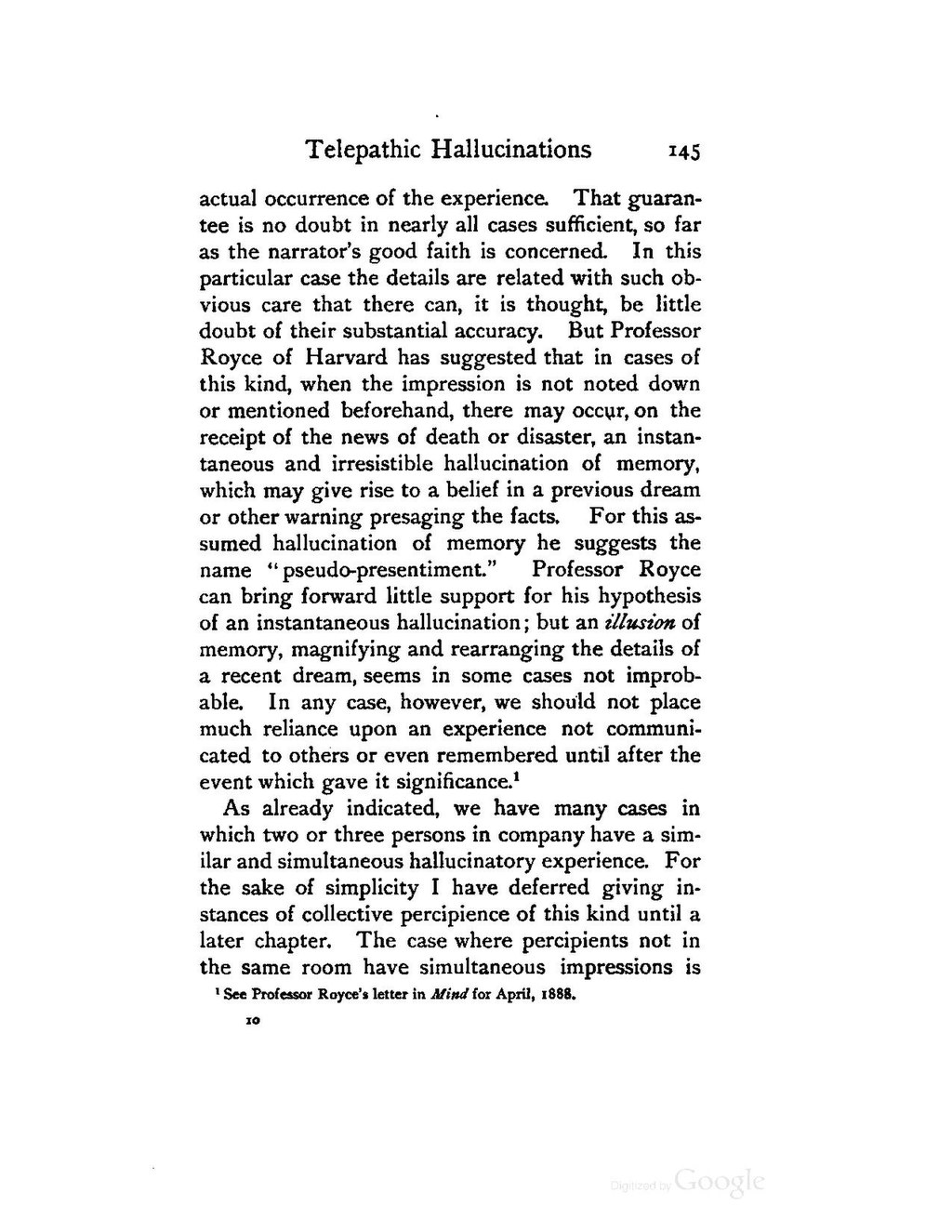actual occurrence of the experience. That guarantee is no doubt in nearly all cases sufficient, so far as the narrator's good faith is concerned. In this particular case the details are related with such obvious care that there can, it is thought, be little doubt of their substantial accuracy. But Professor Royce of Harvard has suggested that in cases of this kind, when the impression is not noted down or mentioned beforehand, there may occur, on the receipt of the news of death or disaster, an instantaneous and irresistible hallucination of memory, which may give rise to a belief in a previous dream or other warning presaging the facts. For this assumed hallucination of memory he suggests the name "pseudo-presentiment." Professor Royce can bring forward little support for his hypothesis of an instantaneous hallucination; but an illusion of memory, magnifying and rearranging the details of a recent dream, seems in some cases not improbable. In any case, however, we should not place much reliance upon an experience not communicated to others or even remembered until after the event which gave it significance.[1]
As already indicated, we have many cases in which two or three persons in company have a similar and simultaneous hallucinatory experience. For the sake of simplicity I have deferred giving instances of collective percipience of this kind until a later chapter. The case where percipients not in the same room have simultaneous impressions is
- ↑ See Professor Royce's letter in Mind for April, 1888.
